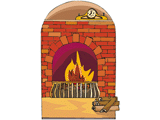More on the subject of guilt and regret...and the atomic bomb. When thinking about Ella's question and recent comments, about how the American people would have reacted if they knew what this bomb could do...I started to think of Paul Tibbetts, the pilot who dropped that bomb. How he felt before - and after he learned of the destruction and devastations.
From some sites on Paul Tibbets and the Enola Gay -
Paul Warfield Tibbets, Sr. and Enola Gay "...had served as the personal pilot of Dwight D. Eisenhower, and he was already an experienced B-29 pilot, thus making him an ideal candidate.
Tibbets had to frequently fly to the Los Alamos Laboratories (in New Mexico) for briefings regarding the Manhattan Project
Initially, Tibbets was unfamiliar with even the concept of an atomic bomb, and was quoted in a 1946 article in The New Yorker saying, "I will go only so far as to say that I knew what an atom was
When the A-bomb was dropped on the city, Tibbets recalls that the city was covered with a tall mushroom cloud.
Colonel Tibbets was seen as a national hero who ended the war with Japan. There were, however, no parades or testimonial dinners for him or any of the other Enola Gay crewmen.
In a 1975 interview he said: "I'm proud that I was able to start with nothing, plan it, and have it work as perfectly as it did .... I sleep clearly every night."[9]
In the 2005 BBC premier, Hiroshima: BBC History of World War II, Tibbets recalled the day of the Hiroshima bombing. When the bomb had hit its target, he was relieved. Tibbets stressed in the interview, "I'm not emotional. I did the job and I was so relieved that it was successful, you can't even understand it."
In 1995, he denounced the 50th anniversary exhibition of the Enola Gay at the Smithsonian Institution, which attempted to present the bombing in context with the destruction it caused, as a "damn big insult, due to its focus on the Japanese casualties rather than the brutality of the Japanese government and the subsequent necessity of the bombing.
"His crews respected him. Psychologically, he could handle the aftereffects of such a mission. For the last 60 years, he has had to deal with the controversy."
"I knew when I got the assignment it was going to be an emotional thing," Tibbets acknowledged Wednesday, noting of his crew, "We had feelings, but we had to put them in the background. We knew it was going to kill people right and left. But my one driving interest was to do the best job I could so that we could end the killing as quickly as possible"If Dante had been on the plane with us, he would have been terrified," Tibbets later said.
"My God," co-pilot Capt. Robert Lewis scribbled in his flight log.
Death estimates have varied widely. Some say 80,000 is a reliable figure, while noting that tens of thousands of others perished by year’s end from the effects of radiation. The dead included 20,000 Koreans the Japanese had enslaved for war work.
